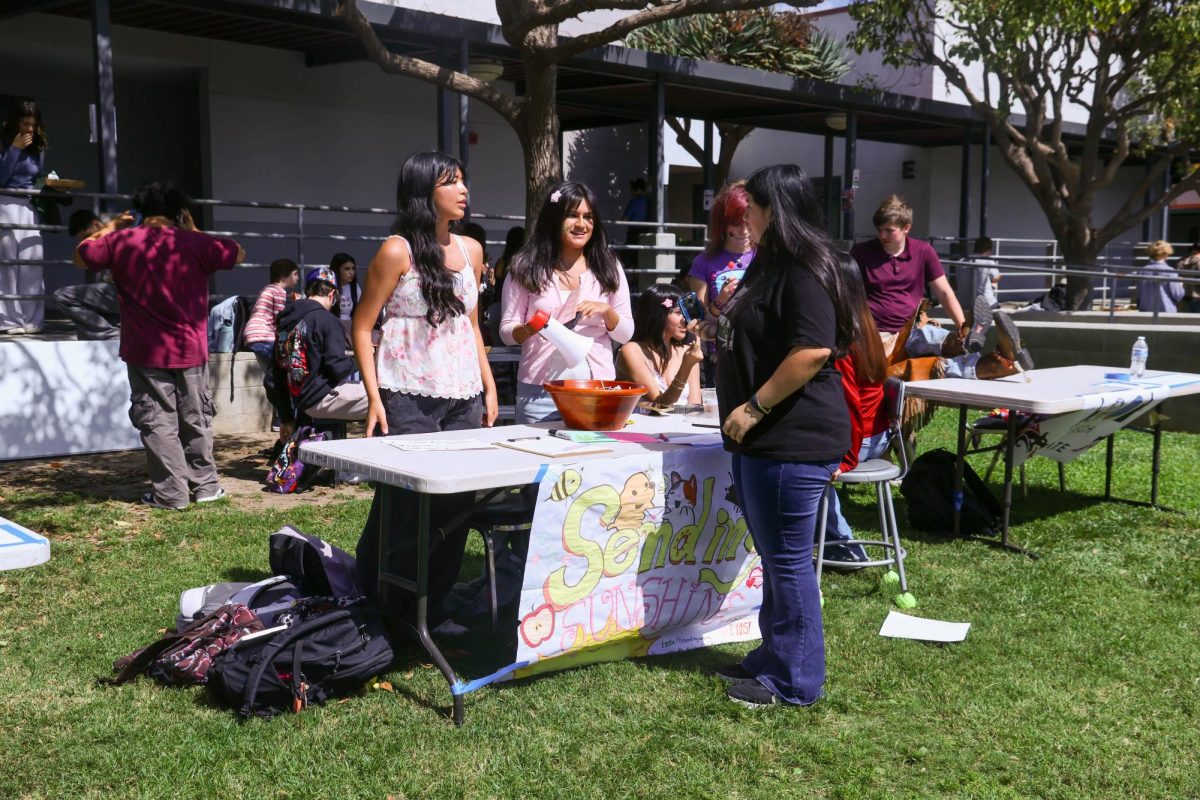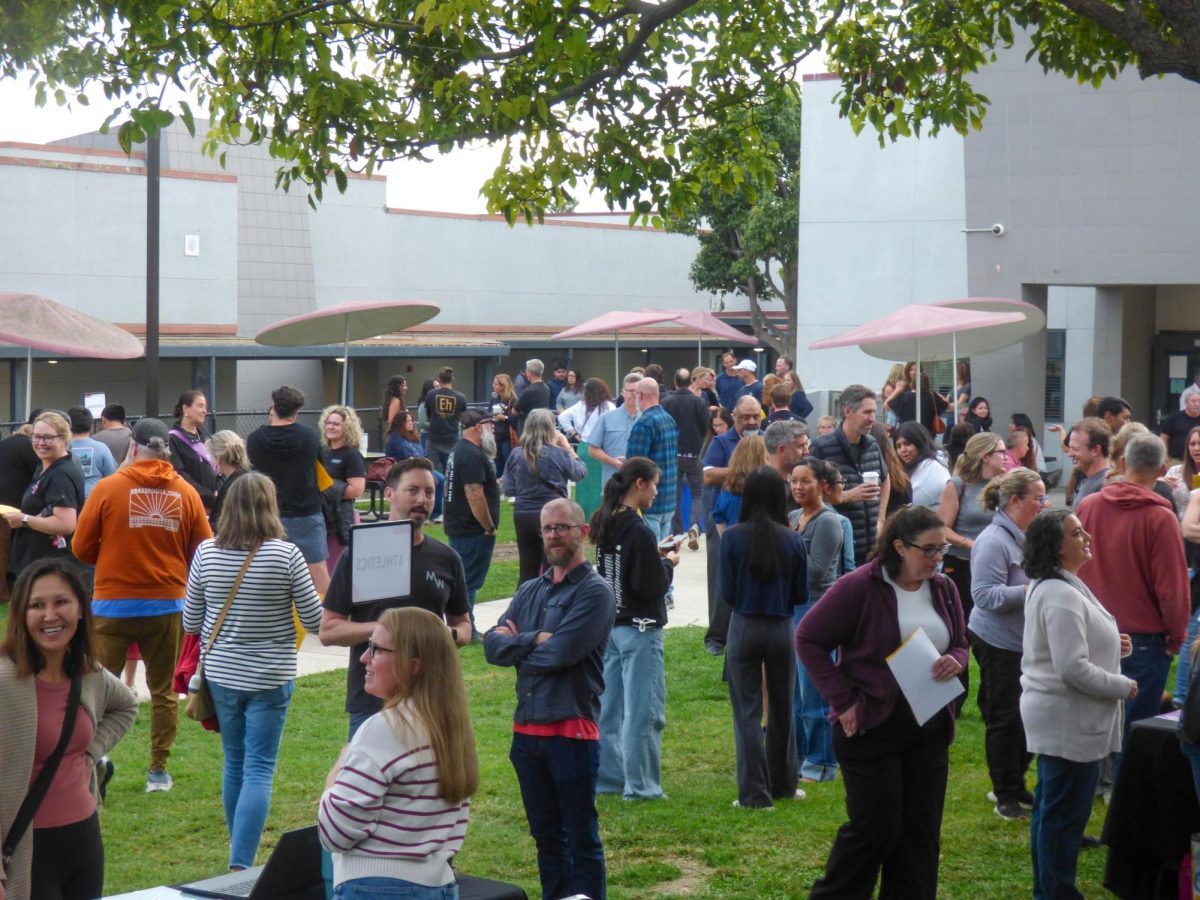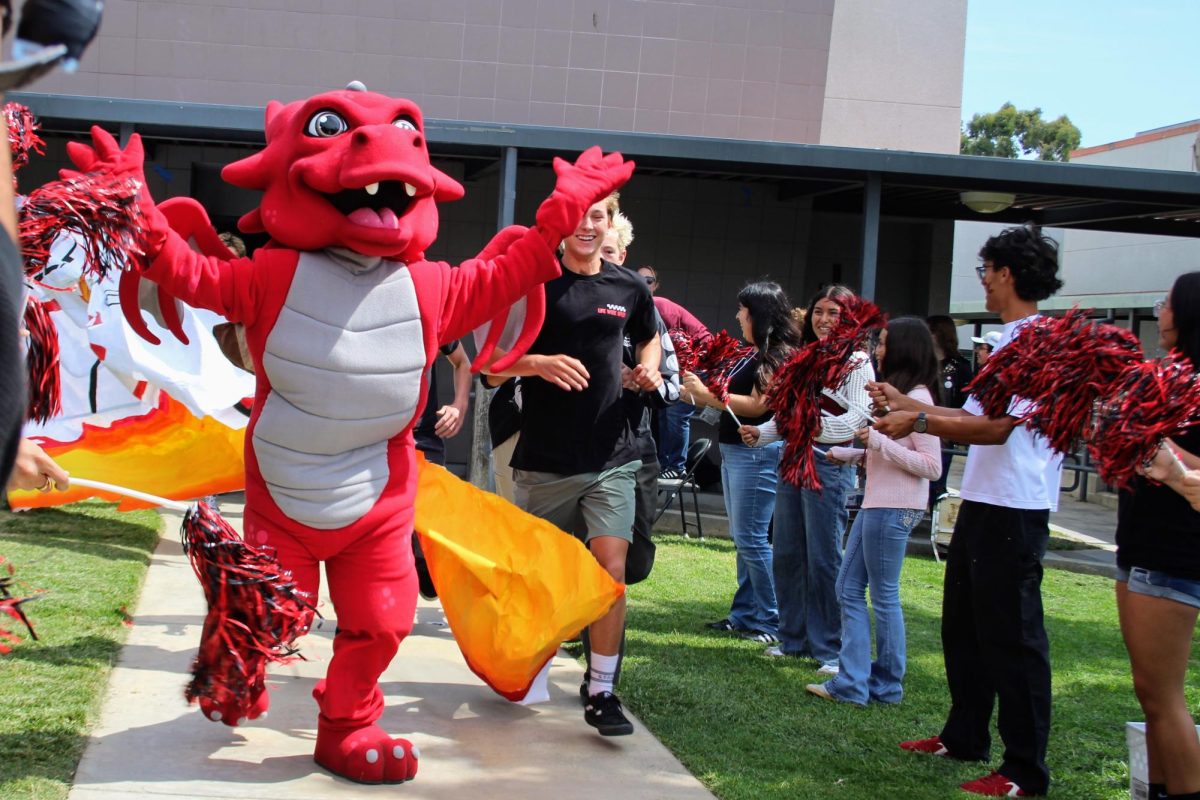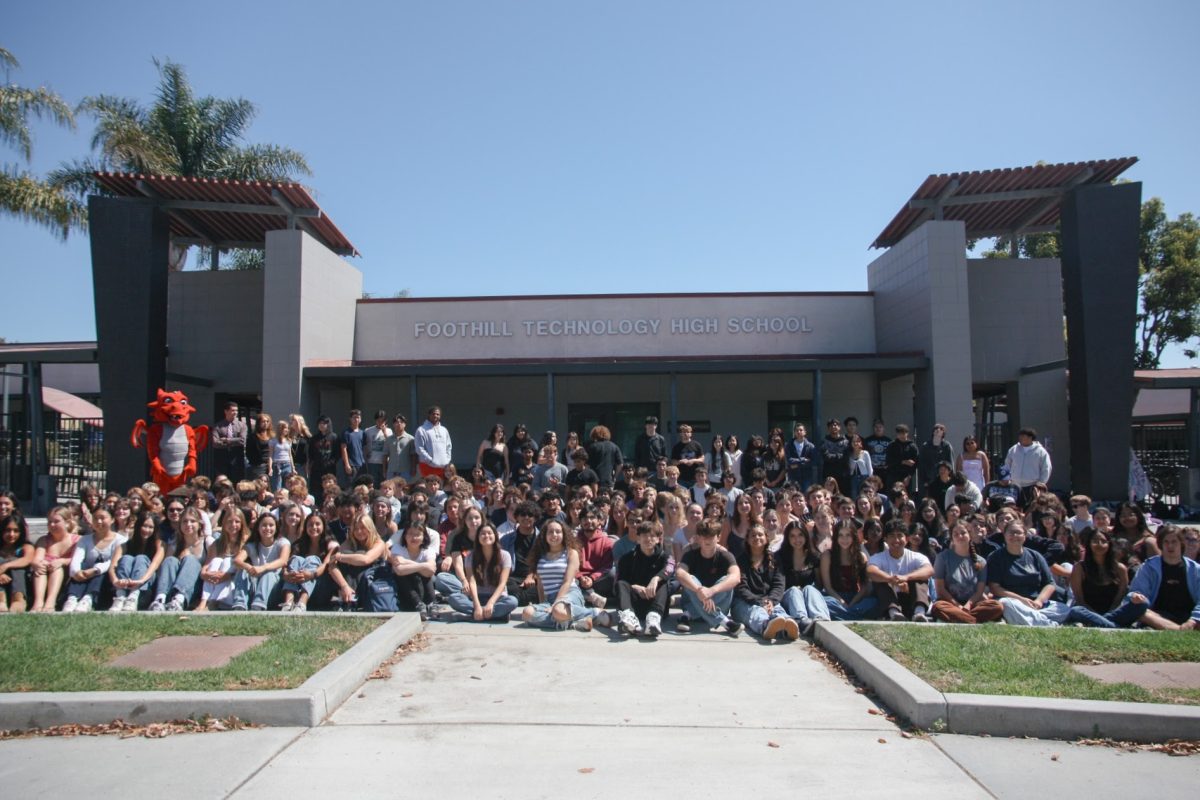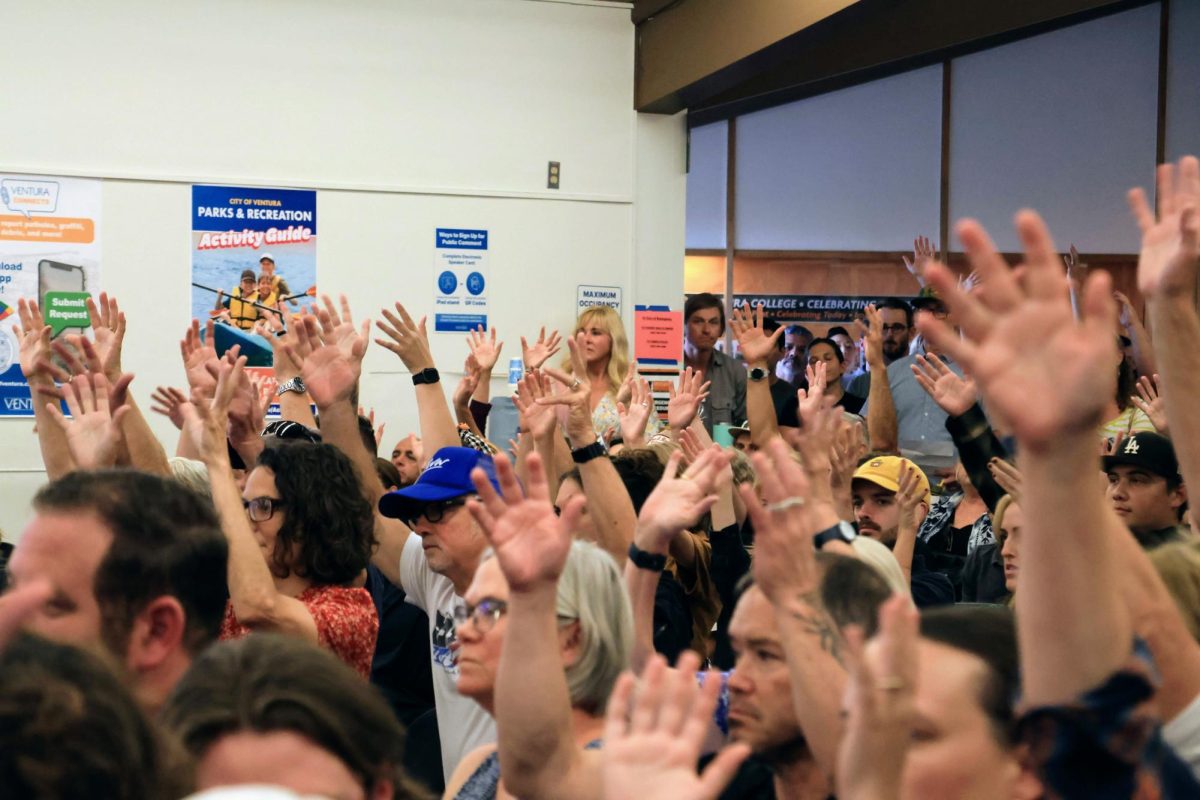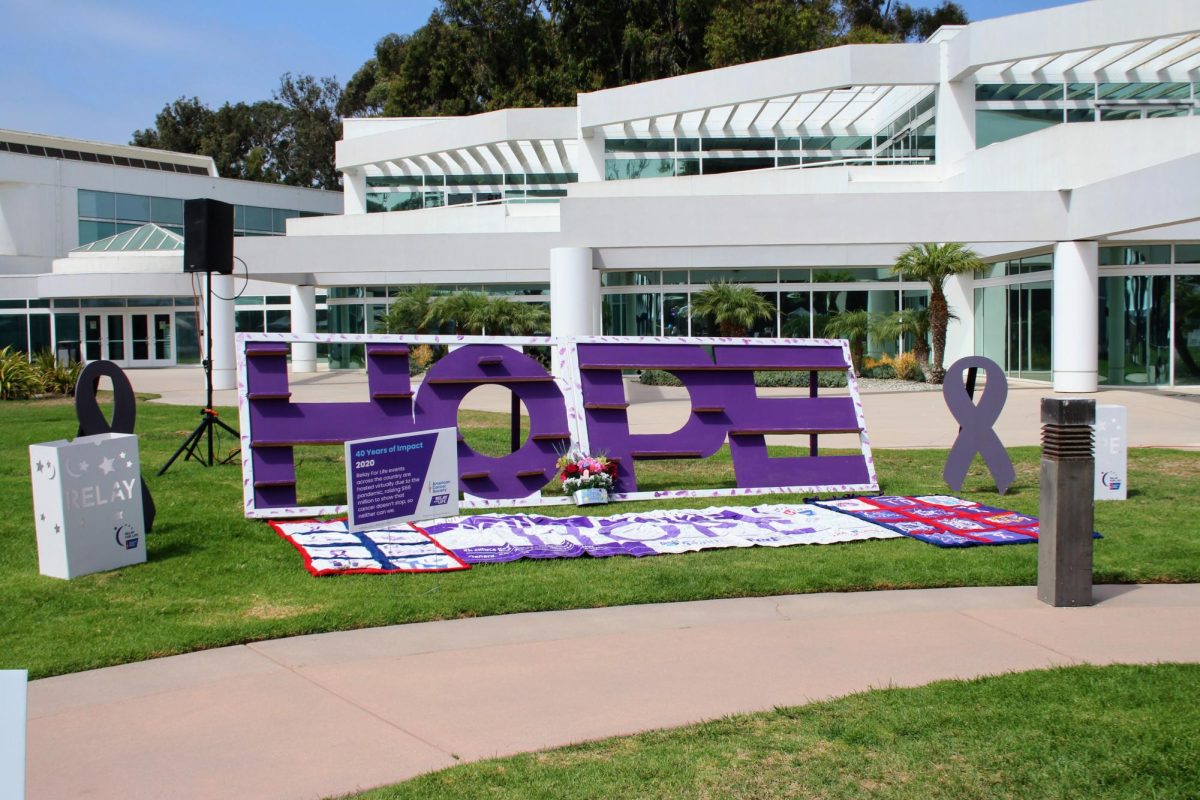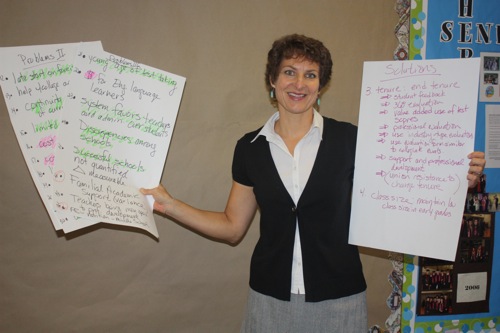
“Forty percent of teachers don’t make it past year five. Year five.”
This pronouncement by Locke High School teacher Ben Clancy was met with concerned looks from the 30 students and nine adults attending the “Meet Up” to Reform Education Wednesday evening at the Wright Library in downtown Ventura.
Cherie Eulau, a Foothill history and government teacher, organized the event after watching an interview with the director of the documentary “Waiting for ‘Superman’ “on “Oprah.” Oprah’s web site provided tools to locate the nearest discussion about the issues raised in the movie, and when she saw that the nearest one was in Los Angeles, she decided to host her own.
Of course, many of the students in attendance were there for the sake of their Citizenship Project. Seniors at Foothill are required to participate in an activity that displays active involvement in their community and their government, such as attending a School Board meeting.
However, most of the students seemed eager to address the issues, as were the parent volunteers and teachers in the room, such as Chris Prewitt, another Foothill teacher.
Many different topics were addressed, so many, in fact that the meeting ran past its projected one-hour time allotment. The meeting was eventually ended nearly two hours later., with plans to hold another one after fall break to fill in more possible solutions for the problems raised.
Eulau, standing at one corner of the misshapen circle of chairs, filled three posters with problems identified within the American education system, but only one poster of solutions, due to time constraints.
Though time worked against them, the majority felt that the meeting went well, even if it was only a start.
“I think it was very effective in bringing up all the problems,” said Michelle Stassforth, a Foothill senior.
Clancy, a former Foothill teacher, said of the meeting, “We’re in the first phase, the idea, conversation. I don’t know what will come from it, but it’s fascinating.”
The issues raised were complicated, as Eulau explained. “[The discussion] certainly skews to high school and reflects Foothill students, but it’s clear that this is a complicated issue.”
The price of AP tests was discussed, reflecting the high density of Foothill representation, but the discussion did flow through more unconventional topics. When problems were called for, they came left and right, everyone offering up their observations and concerns.
Problems listed by participants included the skewed information provided to younger students, who would learn later that the brave founding fathers were flawed after all, or that Christopher Columbus wasn’t actually the first European to discover America, and he spread smallpox to the local population.
The difference and discrepancy between schools also was noted. Some schools work, some don’t, but there are so many variables that it’s difficult for anyone to quantify what makes one classroom successful, participants stated, and if they can’t measure it, other schools can’t hope to replicate the success.
When the discussion came to solutions, the responses were slower, and there was more discussion back and forth from people with different viewpoints on how, exactly, to address the problems they had identified.
The eventual goal of the meetings is to choose the most relevant topics for Ventura Unified and seek to address those within the community. Though education as a whole is being discussed, local action is the top priority.
Parent volunteer Adela Trainor summed it up succinctly: “I believe that within us, we do have the solutions.”


